Graham Reid | | 4 min read
David Bowie: Lazarus

Although we shouldn't presume the “I” in any song belongs to the singer, it was widely taken that David Bowie was referring to himself in 1980 when he sang, “I've never done good things, I've never done bad things, I've never done anything out of the blue”.
The song was Ashes to Ashes, his self-referential hit off the Scary Monsters album (“We know Major Tom's a junkie”), and up to that point Bowie's career had seen few missteps even as he reinvented himself with alarming regularity.
In his long career there have been remarkably few artistic stumbles – the most notable perhaps the unloved Tin Machine band of the late Eighties, which gets scant reference in the touring David Bowie Is exhibition – and yet he has courageously leaped across genres and drawn from diverse reference points.
Certainly he alluded to Philly soul for Young Americans and the sonic landscapes of Kraftwerk and other German artists for Low/“Heroes” and so on. But his gift is how he bends these influences to his own will, reshapes the familiar into something unique and turns them into David Bowie music.
So, like all great artists who stand apart from the mainstream, he can only be compared to himself.
 But his new album ✭ aka blackstar –
released on January 8, his 69th birthday – very rarely sounds like
anything he has done previously, and of course nothing like anything
out there today.
But his new album ✭ aka blackstar –
released on January 8, his 69th birthday – very rarely sounds like
anything he has done previously, and of course nothing like anything
out there today.
It bears no resemblance to its brittle and abrasive predecessor The Next Day of three years ago, and scant reference to anything in his vast catalogue of diversity.
Longtime Bowiephiles might mutter, “Hmmm, Outside perhaps?” or “That bit sounds like something off Black Tie White Noise”, but mostly they're kidding themselves.
Perhaps its closest outside reference point in places might be the stuttering electro-shivers of FKA Twigs, except Bowie is more musically ambitious, and deploys jazz musicians to paint in the widescreen subterranean bass and astonishing drum work from players who shift emphasis and tempo.
So, not really like FKA Twigs at all in fact.
Another reference might be the art music of Scott Walker. But without Walker's declamatory operatic manner, with more melody and less abstruse sound beds.
So, not really like Scott Walker at all, in fact.
Blackstar is not for the casual pop-hit Bowie fan because there isn't a single within ear-shot, the opener is a 10 minute shapeshifter and most of the other tracks click close to or well past the five minute mark. They also work from the bottom up with bass and drums, and there are thrilling passages of contemporary jazz sax and guitar.
At times it is as if Bowie has dialled in the spirits of jazz musicians like trumpeter Don Cherry and saxophonist Ornette Coleman, brought in a jazz academy-trained drum'n'bass crew and then taken them on a left turn.
With one notable exception – the oddball weak point at the middle Girl Loves Me with its compressed and echoed vocals and language pulled from A Clockwork Orange and gay subcultures of the last century – the music is however melodic.
The final track of the seven, the string-enhanced ballad I Can't Give Everything Away is perhaps the most archetypal Bowie moment in the fortysomething minutes as he adopts an emotionally affecting weariness while singing the title line (a telling and long pause before “away”). But he does, he hands the tune over – as he does frequently throughout – to others, in this case a yearning saxophone and a guitar solo full of sustain and melodicism, which at times recalls some of the more straightahead work of Robert Fripp.
It takes the album out with almost heroic sadness.
Some of the seven songs have appeared previously: the 10 minute title track which opens the album (helluva challenge to start with) and moves from a claustrophobic mood over skittering drums through languid sax and onward . . .
Also Sue (Or In A Season Of Crime), was on the expensive 2014 Nothing Has Changed collection. However this new, more aggressively funky version has splinters of guitar piercing it.
And its B-side (on a 12'') 'Tis A Pity She Was a Whore has also undergone a revision for Blackstar.
But none these prepare you for the breathtaking scope of Bowie's musical and lyrical vision here. As mentioned, the extraordinary final song I Can't Give Everything Away almost sounds archetypal Bowie – a little of his Wild is the Wind vocal from Station to Station as filtered through a melody akin to Psychedelic Furs' Sister Europe – but in truth this is all new territory.
A standout is Lazarus (released as a single in December and the title piece of his forthcoming theatre production of The Man Who Fell to Earth) where he adopts his most intimate voice, like a tone poem of increasing desperation.
And what's he on about on Blackstar? Themes of alienation, anxiety, religion, uncertainty and fear abound . . . but close reading might not be especially rewarding because it sounds like he's using the cut-up method. In Lazarus you may decipher references to himself, his brother who committed suicide in '85 and/or John Lennon.
Or not.
The existential lyrics of Dollar Days contain echoes of that final track, and again it is saxophone and guitar which also carry the emotional freight.
Blackstar isn't for those who partied to Let's Dance and maybe not even those who immersed themselves in the sonic textures of Low/”Heroes”/Lodger, but it's quite remarkable and, because it exists outside the wide musical landscape he previously staked out, it drives you into his last 20 years for hints that this might come.
There's nothing.
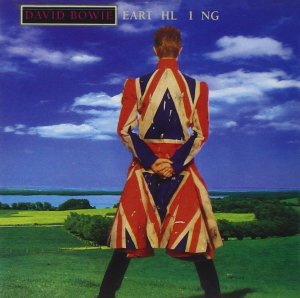 But a search allows a rediscovery of
the underrated 1.Outside ('95) with Brian Eno which – the first of
an incomplete conceptual series – sprung The Heart's Filthy Lesson
and Hallo Spaceboy (remixed by the Pet Shop Boys). Over disconcerting
sonic beds from Tin Machine guitarist Reeves Gabriel, jazz drummer
Joey Barron and others, Bowie declaims a cyberworld in decline.
But a search allows a rediscovery of
the underrated 1.Outside ('95) with Brian Eno which – the first of
an incomplete conceptual series – sprung The Heart's Filthy Lesson
and Hallo Spaceboy (remixed by the Pet Shop Boys). Over disconcerting
sonic beds from Tin Machine guitarist Reeves Gabriel, jazz drummer
Joey Barron and others, Bowie declaims a cyberworld in decline.
That downward spiral went unfinished because for his next album Earthling ('97) he embraced drum'n'bass, jungle and industrial sounds. It remains one of his most interesting albums (Trent Reznor on hand for I'm Afraid of Americans), but it went past most people who only remember the distressed Union Jack(et) he wore on the cover.
When Hours ('99) rolled around many former fans had moved on (fair enough, it wasn't that good) so most missed the excellent Heathen (2002) where he covered Neil Young's I've Been Waiting For You and had a near-hit with the fascinating and melancholy Everyone Says “Hi”.
That album and the patchy Reality (2003) reunited him with producer Tony Visconti who got the call for The Next Day, which appeared unannounced in 2013, and now the exceptional Blackstar.
At 69, David Bowie is still delivering the unexpected and in that regard “nothing has changed”.
But with Blackstar, everything has changed.
This was written three days before David Bowie's unexpected death.

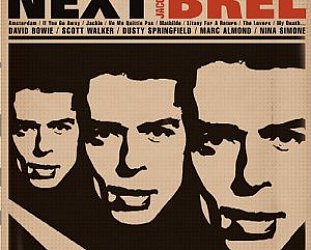

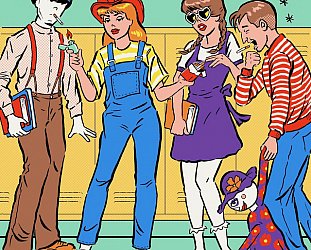

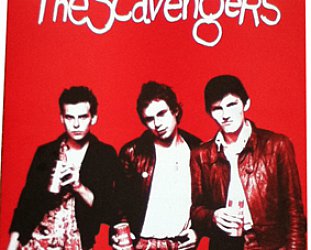
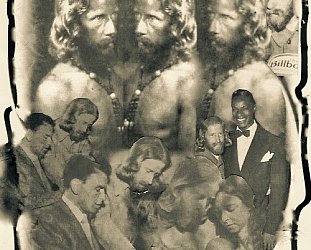
Keith Shackleton - Jan 11, 2016
Totally numb right now. RIP David Bowie.
SaveMickJ - Jan 11, 2016
Graham. Great job on reviewing Bowie's new album. And now I've just heard the news. He's dead.
SaveVale David Bowie. What a performer.
Steve M - Jan 11, 2016
I bought it on Friday, ranting to my wife about how fantastic it is that a 69-year-old with such an amazing career can create something completely new and worth engaging with (although I do feel he might have been sneaking in little samples of himself, like harmonica from "Low"). Now, on hearing of his death, the album feels extremely personal and connected to ideas around mortality, etc. And I feel a bit sad.
Savepost a comment